Sixty percent of realtors search for leads daily.
There are more than 3 million active real estate licenses in the U.S.
These numbers paint a clear picture of how the real estate industry is: competitive and difficult to survive in.
In this situation, you need solid real estate marketing strategies in place to drive lead generation, and help your business build its client base and survive in a cut-throat niche.
It’s worth remembering that high-quality lead generation begins with effective marketing.
So, in this article, we will discuss eight practical real estate marketing strategies, along with examples to help you generate more leads and foster sustainable business growth.
Real Estate Marketing Ideas You Can Start Implementing Today
Trust is the ultimate selling factor, especially in real estate.
Marketing helps build that trust.
Apart from trust, your marketing efforts also help generate qualified leads that can be the anchor your real estate business needs to survive in the competitive realty arena.
Below are top real estate marketing ideas that, if applied properly, can promise to take your business to new heights:
1. An Optimized Website Is A Real Estate Salesperson
Forty-four percent of buyers start looking online.
And your real estate marketing plan can be only successful if you can dial in on your audience with an optimized web presence.
Merely having a website isn’t enough, given that 88% of users won’t return to a website if they have had a bad experience.
You will need to work on your website’s user interface (UI) and user experience (UX) to ensure it serves your business the way you want it to.
Working on your web UX means enhancing numerous areas of your website like structure, content, navigation, load speed, and more.
Build your website’s structure intuitively. Perform audience research to understand the first thing your prospects would want to look for as they visit your website.
Realty company Keller Williams’ website is a good example of how a website’s structure should be.
The web developers were intuitive enough to know their prospects would come in looking for real estate listings. So they have placed the search bar right on the home page, above the fold.
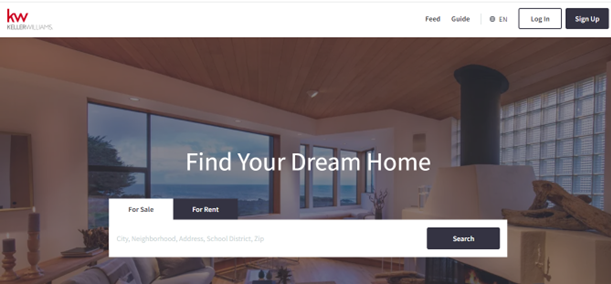 Screenshot from kw.com, November 2022
Screenshot from kw.com, November 2022Next, make sure your website’s content tells your prospects how your services will add value to their life. In other words, talk about the benefits of your services in a clear, concise manner.
Check out how Houwzer has efficiently grabbed attention right from its home page, simply through content:
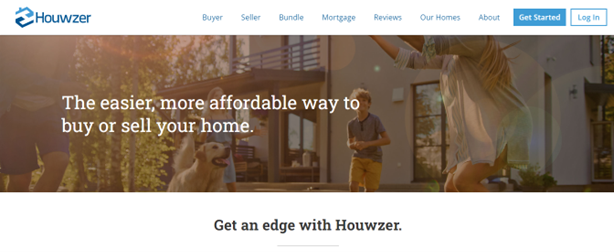 Screenshot from Houwzer, Noevember 2022
Screenshot from Houwzer, Noevember 2022Also, make the website easy to navigate. Don’t make the structure too complicated or confusing for the website visitors.
Additionally, optimize your website’s load speed.
How fast your website loads influences how many sales it will help generate.
A website’s conversion rate drops by up to 5% with each second that the website delays in loading. So, no matter how fantastic your website is, it won’t do you much good unless it loads fast.
There are numerous ways you can increase your website’s load speed.
Your hosting service significantly affects your load speed, so opt for a performance-optimized hosting solution.
A real estate website may have many images. These images can drag your website’s load speed down.
This doesn’t mean you need to delete your images. Compress and optimize them so they weigh light on your website and your website can load fast.
Also, remove any unnecessary content, spaces, characters, and elements from your website.
Finally, optimize your website for search engines.
Most of the ranking factors will be met once you work on your website’s UX.
But you will still need to work on on-page and off-page optimization to have a better chance of ranking higher in the search results.
2. Work On Your Listings
Listings are exceptionally important for the success of your real-estate business.
People don’t shop for homes online, but they do look for them on the internet, and this becomes an important factor in choosing a real estate agent.
Therefore, your prospects will expect an optimized, detailed property listing on your website.
Include high-quality property images, video tours, price range, amenities, and all the details your prospects might be interested in while creating your property listings.
Trompeter Real Estate presents an excellent example of what an optimized listing should look like:
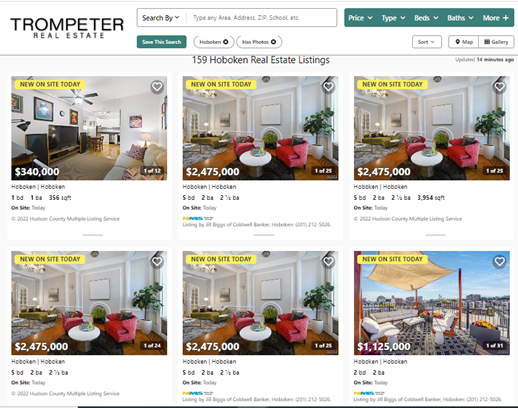 Screenshot from Trompeter, Noevember 2022
Screenshot from Trompeter, Noevember 20223. Setup Your Social Media Presence
Social media generates the highest number – 52% – of high-quality real estate agents’ leads. This is perhaps why a whopping 90% of realtors use Facebook to promote their businesses.
These numbers clearly indicate that social media is an unmissable arena if you want to establish a thriving real estate business.
If you are looking for the right platforms, Facebook, Instagram, and LinkedIn are popular for real estate marketing.
Facebook and Instagram can help you connect with your audience and promote your business explicitly, while LinkedIn will help you implicitly by presenting you as a professional, credible real estate agent.
Once you build your social media profiles, make sure to optimize them. Fill all the required fields with correct and relevant information so your target audience can find your business.
This budding real estate agent (@hearthrealtygroup) has built a well-optimized Instagram handle.
Stay active on your social accounts by posting as frequently as you can.
You can stay active on Instagram by posting to your Stories more often, and sharing posts to your grid every now and then.
On Facebook, you can stay active by interacting with your followers, replying to comments, and posting on real estate groups.
Make sure your content is not too salesy.
Ideally, 80% of your content should be helpful, educational, and relevant. The remaining 20% of it can be commercial.
You can also post about your successful closed deals on these social profiles to build credibility, like Chad Carroll (@chadcarroll) does.
Finally, use optimized hashtags, especially on Instagram.
You can create optimized hashtags by checking out the hashtags other top realtors use and customizing them according to your locality.
You can see how this realtor from New Jersey (@gregletson_njrealtor) has used hashtags to promote his listing.
4. Invest In Social Ads
Social ads are another powerful source for generating quality real estate leads. Once you have built a solid social media presence, you can invest in ads.
Perform audience research beforehand to run targeted social advertising campaigns.
Social media platforms offer excellent ad targeting facilities, and you can capitalize on them only if you have a good understanding of your prospects.
Since you are spending money on these ads, you want to make sure they drive the right results.
So, create appealing advertisements that reflect the value your realty service will add to the client’s life. Ideally, add a testimonial or two, or create an ad based on client reviews.
Finally, include a CTA button on your ads to channel social media traffic to your website like the realtor in the example below has done:
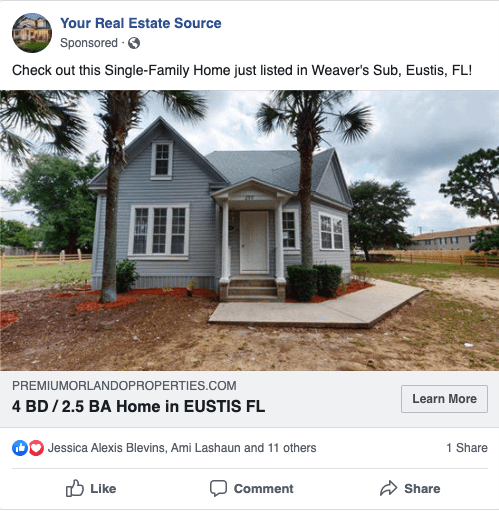 Screenshot from Facebook, November 2022
Screenshot from Facebook, November 20225. Build Your Google Business Profile
A majority of searches for real estate agents are local.
People look for realty businesses with search terms like “Real estate agents near me” or real estate agents [city name],” etc.
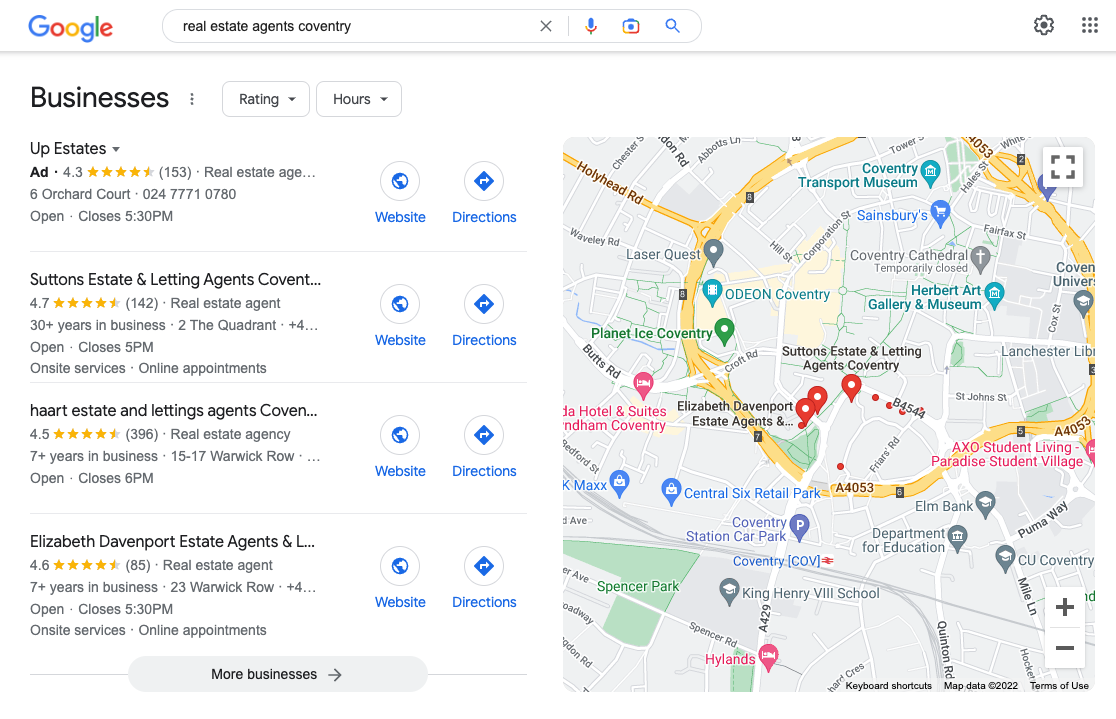 Screenshot from search for [real estate agents coventry], Google, November 2022
Screenshot from search for [real estate agents coventry], Google, November 2022If you haven’t already, create or claim your GBP listing.
It is an excellent source for driving web traffic and business exposure.
An optimized GBP profile acts as a second home page and displays your business’s reviews and ratings, contact number, address, and business hours. This is why it has the potential to generate high-quality real estate leads.
You can create a similar GBP profile by visiting Google.com/business.
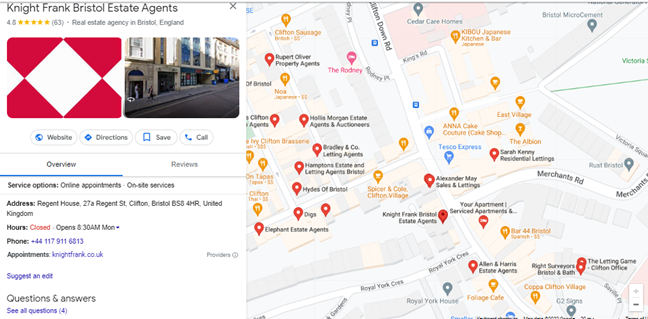 Screenshot from Google, November 2022
Screenshot from Google, November 20226. Invest In Content Marketing
Content marketing helps generate demands/leads, according to 67% of marketers. Moreover, 82% of marketers are actively investing in this area.
High-quality, valuable content can help your business build trust with your prospects. It also helps you establish your presence as an industry thought leader.
Any business that wishes to thrive in this era cannot stand to ignore content marketing.
As a real estate business, you can create a variety of content to fuel your content marketing efforts that could align with real estate marketing videos as well.
Start with creating a blog section on your website. Find out what your prospects are struggling with and create content addressing their problems and offering solutions.
The Zillow Blog offers a good example of how real estate blogs should be:
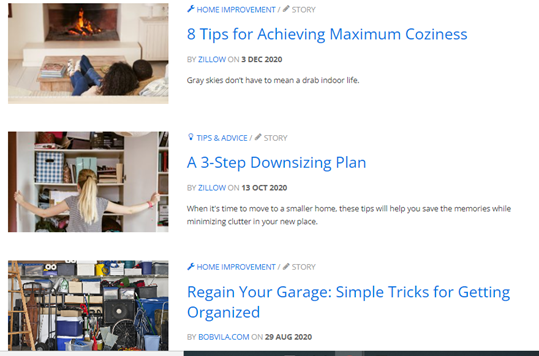 Screenshot from Zillow Blog, November 2022
Screenshot from Zillow Blog, November 2022Create your YouTube channel and post helpful video content there. Your YouTube content can include home tours, area tours, and other educational content.
This Florida-local realtor has built a remarkable YouTube channel with lots of helpful content and just the right copy to attract viewers:
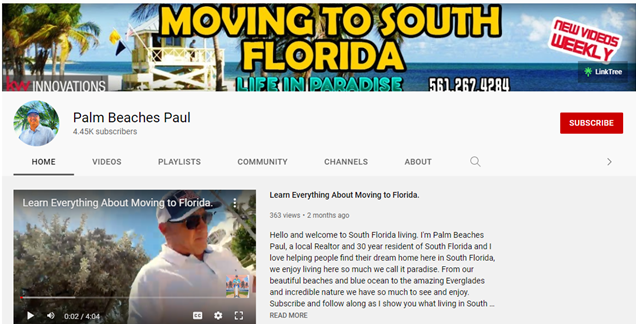 Screenshot from YouTube, November 2022
Screenshot from YouTube, November 2022Talking about educational content, hosting webinars is also an excellent content marketing approach. 89% of businesses believe webinars outperform other digital channels in generating qualified sales leads.
So, invest in webinars.
Remember, don’t talk about topics you want to talk about; Choose webinar topics according to what your audience wants to listen to.
Finally, consider guest-writing articles on relevant real estate websites, local blogs, and newspapers. Doing so will help build your authority and portray you as an industry expert.
7. Consider Email Marketing
Email marketing is one of the best ways to reach new prospects and keep the old ones engaged.
But before you can start doing it, you will have to build your email list.
Your email list should, ideally, comprise people who have been your clients, or those who are most likely to become your clients in the future.
There are many ways you can build your email list, like:
- Using gated content.
- Including pop-ups on your website.
- Offering discounts or gifts to someone in exchange for their email address.
- Adding a simple banner on your website to attract clients.
Here’s an example from one of the top realtors in the Jersey City area of a website banner to generate email addresses for email marketing (don’t miss out on the note at the bottom):
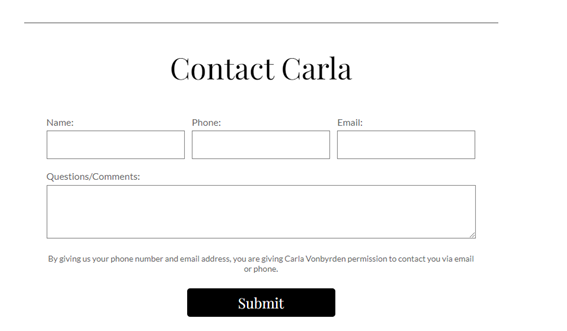 Screenshot from Century21.com, November 2022
Screenshot from Century21.com, November 20228. Get Testimonials
Sixty-seven percent of real estate buyers find agents through referrals from past clients.
Reviews are absolutely critical for your real estate business if you want to attract clients and keep your business going.
Gaining positive reviews is not too easy, though.
People are eager to leave a negative review but not so quick to write a positive one. Therefore, you will have to work hard to get reviews from your clients.
Consider reaching out to clients you have consulted with via email, requesting a review. Also, ask people you have closed deals with to leave a review.
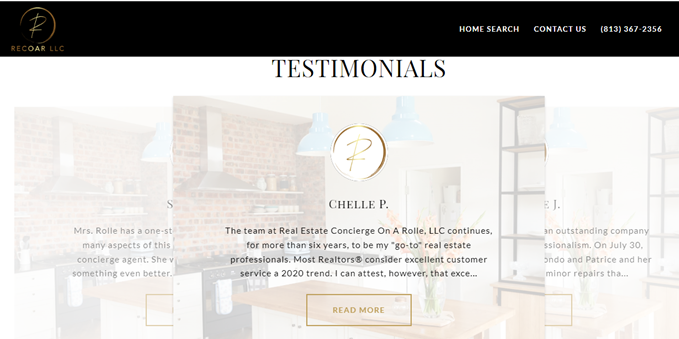 Screenshot from recoarllc.com, November 2022
Screenshot from recoarllc.com, November 2022If you have some clients who you have excellent relations with, ask them to participate in video testimonials that you can share on your social media and YouTube channel.
Reviews and testimonials are the ultimate trust signal.
Make gaining reviews a part of your real estate marketing strategy.
Final Words
Real estate marketing, especially online marketing, is critical for the survival of any modern real estate business, whether small or large.
As you implement the marketing strategies discussed above, remember the importance of high-res visuals.
Include high-quality property images in your social posts, website, and everywhere you can.
Also, the marketing world evolves rapidly, so keep track of the changes in real estate marketing and adapt your strategy accordingly.
More resources:
- Real Estate Link Building: 4 Of The Best Tactics
- Real Estate PPC: Tips For Optimizing Google Ads Campaigns
- 10 Local SEO Tips To Improve Your Real Estate Websites
Featured Image: Andrey_Popov/Shutterstock





![[SEO, PPC & Attribution] Unlocking The Power Of Offline Marketing In A Digital World](https://www.searchenginejournal.com/wp-content/uploads/2025/03/sidebar1x-534.png)